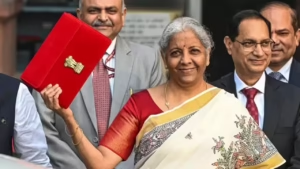Author: Gaurav Tyagi, Founder, Career Xpert
Pursuing an MBBS degree is a major milestone in the life of any medical aspirant. However, choosing the right medical college is equally crucial as it lays the foundation for your future career in medicine. With hundreds of government and private colleges across India, making the right choice can feel overwhelming. Here’s a detailed guide to help MBBS aspirants and their parents understand the essential criteria to evaluate before finalising a medical college.
1. NMC Recognition and Accreditation
The first and foremost criterion is that the medical college must be recognised by the National Medical Commission (NMC). An NMC-recognised degree is valid for further studies, internships, and job opportunities both in India and abroad. Check the NMC official website to verify the college’s status.
2. Government vs Private College
Understanding your preference and budget is essential:
- Government Colleges: Lower fees, higher competition, and usually better infrastructure and faculty.
- Private Colleges: Higher fees, more availability of seats, and good facilities in some reputed institutions.
Make a decision based on your NEET score, budget, and long-term goals.
3. Infrastructure and Facilities
An ideal medical college should have:
- Well-equipped laboratories
- Updated libraries with access to medical journals
- Modern classrooms
- Advanced clinical exposure in its associated hospital
- Hostel and residential facilities
A strong infrastructure enhances practical learning and research exposure.
4. Attached Hospital and Clinical Exposure
One of the most critical aspects of an MBBS program is hands-on clinical training. Check:
- Whether the college has a fully functional teaching hospital
- The bed strength and patient inflow
- Availability of specialised departments like surgery, paediatrics, gynaecology, etc.
More patients mean better exposure, experience, and confidence-building for students.
5. Faculty and Teaching Quality
Great mentors can shape great doctors. Review:
- Faculty qualifications and experience
- Student-faculty ratio
- Frequency of clinical rounds, seminars, and mentorship programs
You may refer to student reviews or consult seniors to get real insights.
6. Academic Results and PG Success Rate
A college’s past NEET PG/MCC counselling records say a lot. Find out:
- How many students from the college crack NEET PG or INI-CET every year
- Availability of PG courses and departments
- Research opportunities and publication exposure
This reflects how well the college prepares students for competitive exams and future specialisations.
7. Location and Accessibility
Location plays a practical role, especially for students relocating:
- Proximity to home (optional)
- Safety and connectivity of the area
- Weather conditions and living standards
- Language and cultural comfort
For some students, a metro-based college may offer better exposure to diverse cases.
8. Fee Structure and Scholarships
Understand the complete fee breakup:
- Tuition fees, hostel charges, mess fees, and hidden costs
- Availability of education loans, state scholarships, or fee waivers
Make sure you can comfortably manage the financial commitment for the full 5.5-year course.
9. Student Life and Extracurriculars
A balanced college life helps students de-stress and grow holistically:
- Availability of sports, cultural events, clubs, and medical conferences
- Student unions and participation in community health programs
- Alumni network and mentorship
These factors foster leadership, communication, and team-building skills.
10. Internship and Placement Opportunities
- Quality of the CRMI (Compulsory Rotatory Medical Internship)
- Stipend offered during internships
- Alumni placements in reputed hospitals, government posts, or foreign institutions
Better internship experiences prepare you for real-world medical responsibilities.
Choosing the right medical college is not just about your NEET score. It’s about aligning your academic, financial, and professional aspirations with the offerings of the institution. Do thorough research, talk to seniors, attend counselling sessions wisely, and don’t hesitate to seek professional guidance if needed. A good start today ensures a bright future in medicine tomorrow.













More Stories
UIDAI Rolls Out Three Major Aadhaar Rule Changes From November 1, 2025
Karnataka Cannot Regulate Foreign Universities, Says Higher Education Minister
PM Modi Speaks at the South India Natural Farming Summit 2025 in Coimbatore